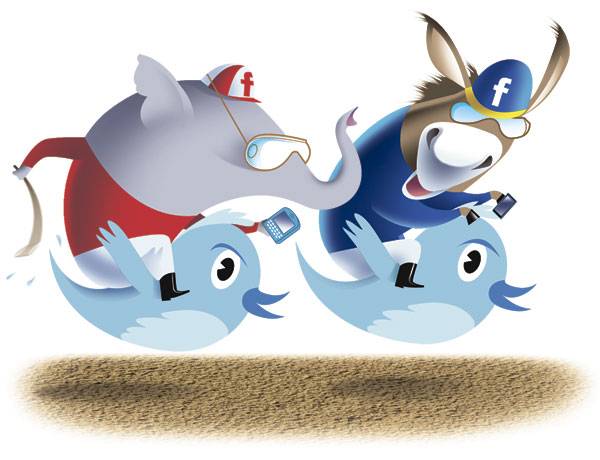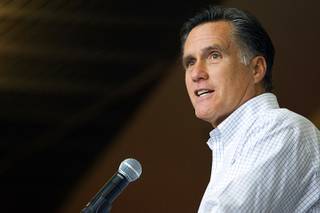Saturday, May 21, 2011 | 2 a.m.
Beyond the Sun
President Barack Obama, in many ways, rode into the White House on a computer keyboard. Social media played a huge role in his election and was critically important in helping him raise money, organize volunteers and reach voters.
Republicans took note of the strategy and now appear to be copying it for the 2012 election cycle.
On Monday, Mitt Romney stood in the Las Vegas Convention Center and broadcast into cyberspace a Facebook town hall. Talking casually to a camera and about 600 Internet viewers, Romney delivered a short speech, then took five softball questions that allowed him to outline his plans to create jobs, encourage entrepreneurship and close the national deficit.
“If you’re watching or listening, I would sure appreciate it if you would make an effort today to show your support for this budding campaign. It doesn’t have to be a lot,” Romney said.
Later, the presumed Republican presidential candidate explained his strategy: “My party, and me as an individual, need to do more to connect with college-age people,” Romney said. “We as a party must connect with Hispanics and minority voters of all kinds.” The Internet provides a direct link to such voters. “It’s more people to connect with. It ignites interest across geographies,” Romney said.
In the 2008 election cycle, social media in politics were primarily a Democratic phenomenon, spearheaded in large part by Obama. The monopoly is long gone.
Indeed, a Pew Research Center poll found that one in five Americans used social networks to get or share political information during the 2010 midterm elections. That included many candidates from both sides of the aisle. Republicans used social media more frequently than Democrats, a somewhat surprising statistic until you consider the role the Internet played in the formation of the Tea Party movement.
“The social networking population as a whole has grown larger and demographically more diverse in recent years, and the same is true when it comes to political activity on social networking sites,” said Aaron Smith, author of the Pew report.
Romney announced the creation of his 2012 presidential exploratory committee in an online video posted to his website. He promoted it through Facebook and Twitter. Minnesota Gov. Tim Pawlenty entered the Republican fray via a Facebook video. Newt Gingrich tossed his hat into the ring on Twitter. Potential Republican candidates Sarah Palin and Michele Bachmann regularly take to Facebook, Twitter and YouTube to criticize Democrats to tens of thousands of followers.
The more candidates who enter the presidential race, the more social media could matter, one expert said.
“The competitive primary may make the biggest difference because oftentimes that’s when you see a campaign — especially ones that aren’t the favorites — looking for ways to innovate,” said Aaron Shaw, a fellow with the Berkman Center for Internet and Society at Harvard University.
The 2008 Democratic primary speaks to that theory. Hillary Clinton had a lock on much of the Democratic establishment, so Obama turned to cyberspace. Everyone knows the ending to that story.
“It may be that innovation on the right comes from unexpected places,” Shaw said.
Obama, on the other hand, will likely stick to his tried-and-true tactics. Hesitant to be outdone by Republicans seizing on his Internet innovation, he announced his re-election bid online as well. A few weeks later, he doubled down with an Internet town hall broadcast from ground zero of the social media scene, Facebook’s headquarters.
Interest in the event clearly showed Republicans still have catching up to do if they want to beat Obama in cyberspace, and in the election.
Remember the 600 town hall viewers Romney, the Republican front-runner, attracted? A day after Obama’s town hall was announced, more than 20,000 people had signed up to watch.



Join the Discussion:
Check this out for a full explanation of our conversion to the LiveFyre commenting system and instructions on how to sign up for an account.
Full comments policy